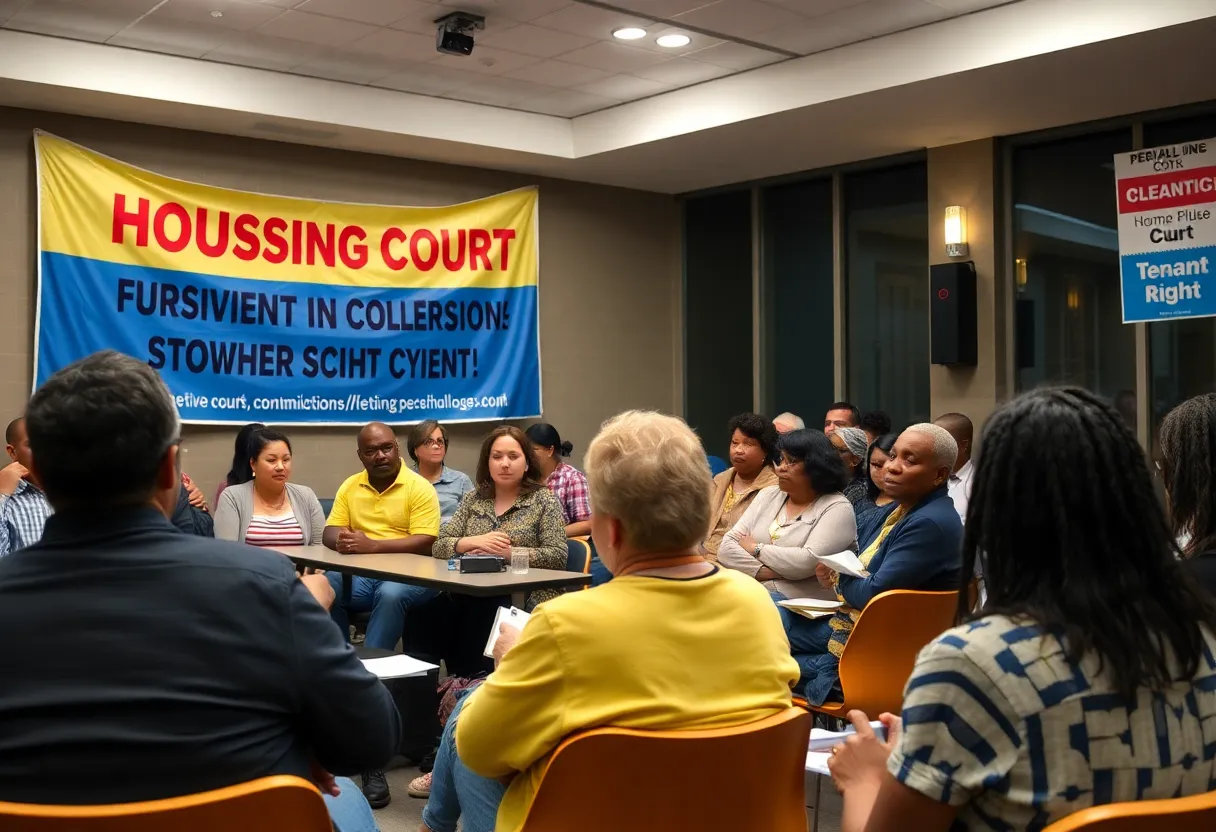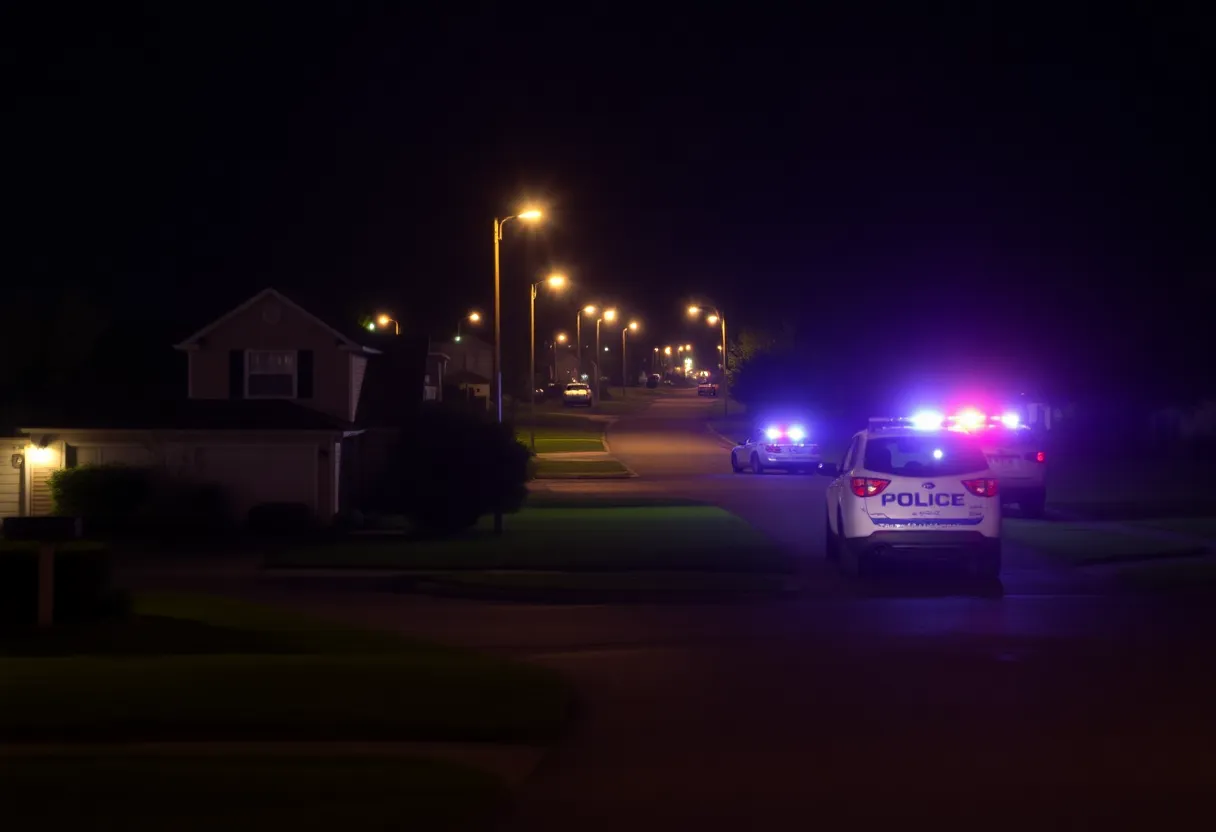News Summary
The Greenville County Council is pushing for the establishment of a housing court to combat the city’s high eviction rates. During the Nehemiah Action event, local council members emphasized the need for legal support for tenants, as current eviction challenges deeply affect families. The proposed court aims to promote fair resolutions and alleviate the burdens associated with legal processes. With strong legislative support and local organizations providing educational resources, the community anticipates positive changes in the eviction landscape by 2025.
Greenville County Council Pushes for Housing Court to Tackle Eviction Crisis
In the heart of Greenville County, the wheels are turning to address a significant issue that’s negatively impacting thousands of families. Council members, including Frank Farmer and Ennis Fant, are rallying behind the idea of a housing court aimed at combating the area’s disconcertingly high eviction rates. This initiative was a hot topic during the recent Nehemiah Action event hosted by GOAL Justice, where an enthusiastic crowd of over 1,100 people gathered to voice their support.
Understanding the Eviction Landscape
At present, Greenville County finds itself grappling with one of the highest eviction rates in South Carolina. A staggering 15,000 eviction notices were filed in just the past year, with the county’s eviction rate nearing three times the national average. In fact, statistics reveal that one in five renters has received an eviction notice. This reality casts a shadow over numerous families, whose daily lives are interrupted by the threat of losing their homes, all while their children may suffer academically and emotionally as a result.
The Impact of Eviction Records
Adding to the burden, eviction records in South Carolina remain on a tenant’s record indefinitely. This can severely limit future housing opportunities, standing in the way of families even if they have emerged victorious in court! In a state where roughly 70% of eviction cases stem from nonpayment of rent—often due to unforeseen expenses like medical bills—the burden on residents becomes even heavier. Despite the fact that roughly 25% of tenants manage to win their eviction cases, the stigma attached to eviction notices continues to influence rental applications negatively, regardless of the case’s outcome.
The Role of the Proposed Housing Court
The proposed housing court aims to provide a more accessible avenue for legal support for tenants facing eviction. By establishing a dedicated court, officials hope to promote fair resolutions between landlords and tenants, easing the daunting legal processes that can leave many feeling helpless. A pilot housing court program initiated by the South Carolina Supreme Court in Charleston County back in 2019 has already demonstrated promising results, lowering eviction filings by 25%. With Richland County also reaping the benefits of its own housing court, there’s a strong case for Greenville County to take similar action.
Legislative Support for Change
As part of this initiative, two significant pieces of legislation were highlighted during the assembly. One proposed bill aims to remove eviction records if a court rules favorably for the tenant, while another seeks to expunge these records after a six-year period. This bipartisan support from the county’s Statehouse delegation shows a unified commitment to making meaningful change in the community.
Resources and Education for Tenants
Local organizations are also stepping up their game, introducing initiatives geared towards reducing the impact of evictions. Education on rights and responsibilities is a key strategy, providing tenants with the knowledge they need to navigate challenging situations. As the housing court program gains momentum, experts anticipate that it could help lower eviction rates, decrease homelessness, and provide the stability families need during the school year.
The Road Ahead
The expectation is palpable as the community looks towards a vote on this promising housing court program, which is projected to take place by the summer of 2025. As Greenville County endeavors to tackle its eviction crisis head-on, the hope is that concerted efforts and community engagement will lead to a significant turnaround for renters. Only time will tell, but for the families affected, this could be a beacon of hope in an otherwise challenging situation.
Deeper Dive: News & Info About This Topic
HERE Resources
Bessemer City Introduces New Housing at Lofts at Osage Mill
Greenville Community Advocates for Housing and Safety
Greenville Planning Commission Approves Key Developments
Charleston Property Management Company Faces Major Antitrust Lawsuit
New Skatepark and Pump Track Planned for Greenville
Greenville County Addresses Eviction Crisis and Pedestrian Safety
Greer City Council Approves New Sports Complex
Iowa Enacts Law Removing Gender Identity Protections
Discover the Vibrant Growth of Greenville
Greenville County Men Face $1 Billion Fraud Allegations
Additional Resources
- Post and Courier: Greenville County Eviction Housing Court
- Wikipedia: Eviction
- Greenville Journal: High Number of Evictions
- Google Search: Eviction Resources
- Fox Carolina: Impact of Evictions in Greenville County
- Encyclopedia Britannica: Landlord-Tenant Law
- Greenville Journal: Tackling Eviction Rates
- Google News: Greenville Evictions







